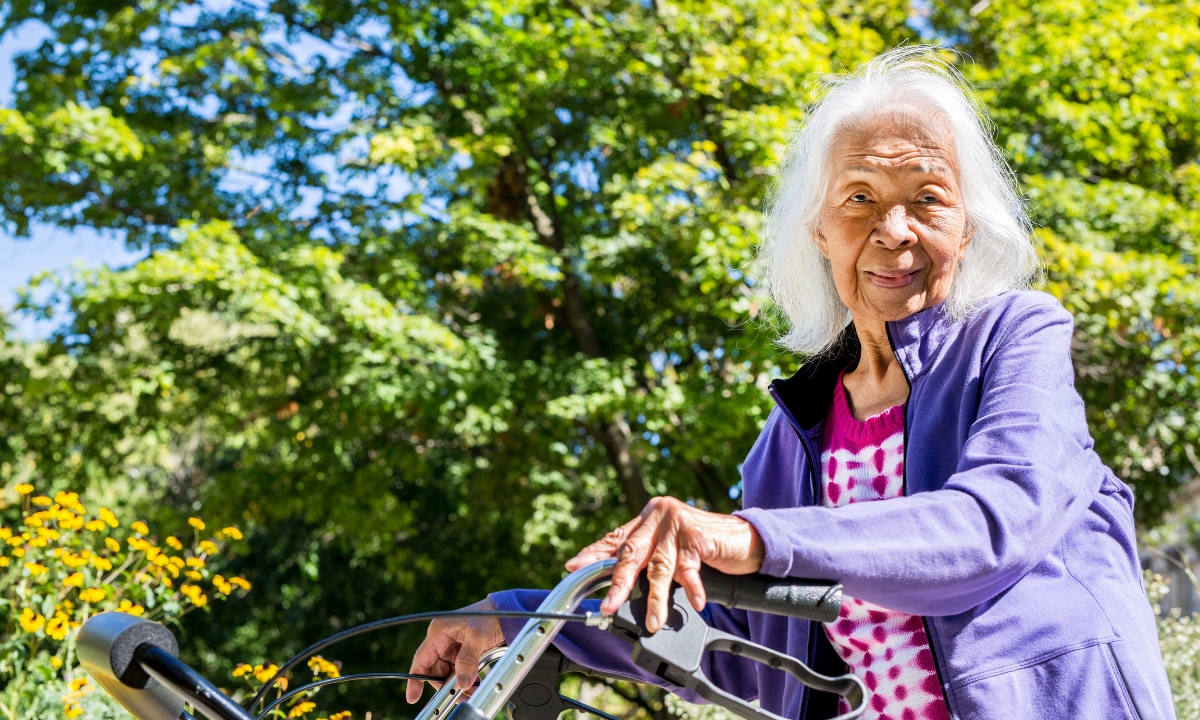Caring for a senior loved one, especially if they are living with dementia, Alzheimer’s, or other memory-related conditions, can be both rewarding and challenging. You may have noticed moments of frustration or confusion, times when words seem out of reach, or when emotions feel overwhelming. But sometimes, a familiar song can break through where words cannot.
Music therapy is an incredible tool that can bring joy, connection, and comfort to seniors, even in the later stages of life. Research has shown that music can unlock memories, reduce anxiety, and improve overall emotional well-being. Whether your loved one is receiving in-home care or living in a memory care facility, incorporating music into their daily routine can make a meaningful difference.

How Music Affects the Brain
Even as dementia progresses, music has a unique ability to reach areas of the brain that remain intact. Unlike language and reasoning, which are often affected by cognitive decline, musical memory is processed differently—often staying accessible even in advanced stages of Alzheimer’s.
One study found that familiar music stimulates multiple regions of the brain, including those responsible for emotions, memory recall, and motor skills. This explains why a person who struggles to remember names or recognize faces might still hum along to a beloved song from their youth.
Benefits of Music Therapy for Seniors
1. Enhancing Memory and Cognitive Function
For seniors with Alzheimer’s or dementia, music can be a bridge to the past. A familiar tune from their younger years can trigger memories, spark conversation, and create a sense of connection. Even for those who struggle with verbal communication, you may notice them tapping their fingers, swaying, or even singing along.
According to the Alzheimer’s Association, music therapy can help reduce agitation and improve cooperation during daily activities, such as bathing or dressing. This can be especially helpful for those receiving in-home care, as caregivers can use music to create a soothing environment and encourage participation.
2. Reducing Stress and Anxiety
Dementia can sometimes cause confusion, restlessness, or even aggression, making daily interactions more challenging. Music has been shown to lower cortisol levels, the hormone responsible for stress, and promote relaxation.
Soft, calming music—such as classical or instrumental pieces—can help ease anxiety, especially during difficult transitions like bedtime or mealtime. If your loved one experiences sundowning syndrome, where confusion and agitation increase in the late afternoon or evening, playing familiar, soothing melodies may help create a sense of peace.
3. Encouraging Social Interaction and Emotional Well-Being
Music brings people together. Whether it’s singing along to an old favorite, clapping to the beat, or dancing with a caregiver, music therapy fosters connection and engagement.
A 2020 study in the Journal of Nursing Research found that seniors who participated in group music sessions showed improved mood, reduced depression, and greater social engagement. If your loved one enjoys music, consider attending a local senior center’s music program or arranging a visit from a music therapist as part of their care routine.
4. Supporting Physical Health and Mobility
Music isn’t just good for the mind—it can also benefit the body. Many seniors respond positively to rhythmic movement, whether it’s tapping their feet, swaying, or even gentle dancing. Music-based movement therapy can improve balance, coordination, and mobility, reducing the risk of falls.
For those receiving in-home care, caregivers can incorporate gentle movement exercises to music, helping seniors stay active in a safe and enjoyable way.

How to Incorporate Music Therapy into Your Loved One’s Routine
The good news is that you don’t need to be a trained therapist to use music therapy at home. Here are some simple ways to bring the healing power of music into your loved one’s daily life:
- Create a personalized playlist – Choose songs from their youth or favorite genres. Apps like Spotify and Apple Music allow you to create easy-to-access playlists.
- Sing together – Even if they can’t carry a tune, singing can bring joy and encourage verbal expression.
- Encourage gentle movement – Clapping, tapping feet, or swaying to music can be both fun and beneficial.
- Use music to create structure – Play calming tunes during bedtime or lively music during morning routines to set a positive tone.
- Consider professional music therapy – A licensed music therapist can tailor sessions to your loved one’s specific needs, offering specialized techniques to enhance cognitive and emotional well-being.
Music Therapy and Professional Care
If your loved one is receiving home care services, you can work with caregivers to incorporate music into their routine. Here at Reliant Home Care Services understands the importance of holistic care, and our caregivers can help integrate music therapy techniques into daily activities, whether through playing music, singing together, or using music to encourage relaxation.
By embracing music therapy, you’re not only providing comfort and joy to your loved one but also strengthening your bond with them. Even in the face of memory loss, music has the power to connect us, evoke emotions, and bring moments of clarity and happiness.
If you’re looking for ways to enhance your loved one’s senior care, Reliant is here to help. Contact us today to learn how our compassionate caregivers can support your loved one’s emotional and physical well-being.

